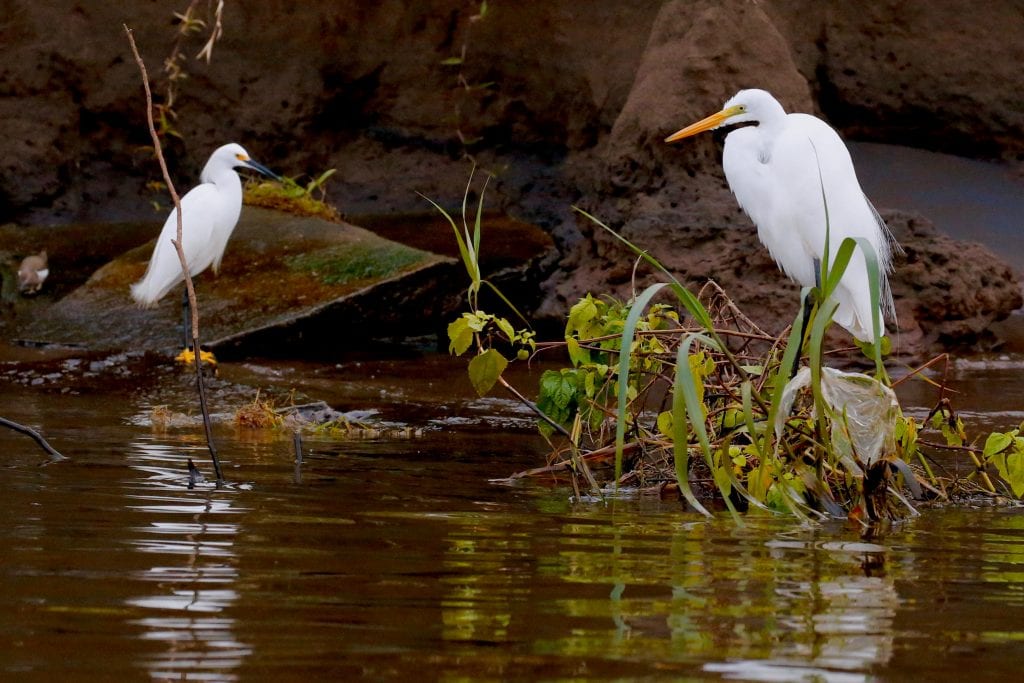DNA Analysis From Chemistry Lab Provides Water Insights for Orange County, Orlando

Chemistry Assistant Professor Melanie Beazley, Ph.D., and her team have developed a groundbreaking biochemical analysis to identify excess contaminants and nutrients in Orlando’s local lakes caused by native Florida birds.
The research, done in collaboration with Orange County and the City of Orlando, uses the DNA of contaminant-inducing agents against specific biomarkers to identify and confirm the source of contamination.
“The fecal material produced by these birds that hang out near the lakes in Orlando have excess nutrients in them, especially nitrogen,” said Beazley. “This can lead to harmful algal blooms and pathogen formation, which is what we are looking to diminish. Birds are a huge contaminant factor.”
Fecal material in water may lead to disease, illness and negatively impact the overall health of local lakes and waterways. The development of microbial source tracking (MST) strategies using specific biomarkers is revolutionary because it tells scientists the source of the fecal contamination.
“Prior to the development of MST, we used a fecal coliform test as a general tool of measurement for fecal material in water,” said Beazley. “The problem with this test is that it isn’t specific to particular organisms. There was something more specific needed to better identify upticks in water contamination.”
To collect data, Beazley and her team take water samples from local bodies of water, filter them and extract the DNA, and use quantitative PCR for analysis. This DNA is tested against specific biomarkers that identify the source of contamination.
“The City of Orlando and Orange County were worried about the native birds and how they affect lake quality,” said Beazley. “I was brought in to develop the biomarker specific to indigenous Florida birds and confirm they are causing increases in contamination.”
The goal of the ongoing project is to help city and county officials and Florida stakeholders mitigate fecal contamination and improve water quality throughout Orlando.
“I hope I have made an impact in this area of research and have helped local officials,” said Beazley. “I am always learning and always looking to fill the gaps in unexplored niches to challenge myself as a scientist, and this project is no exception.”
